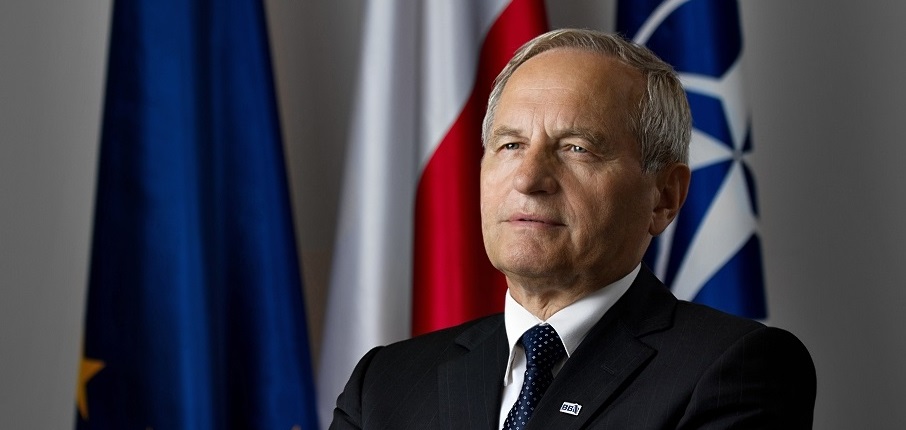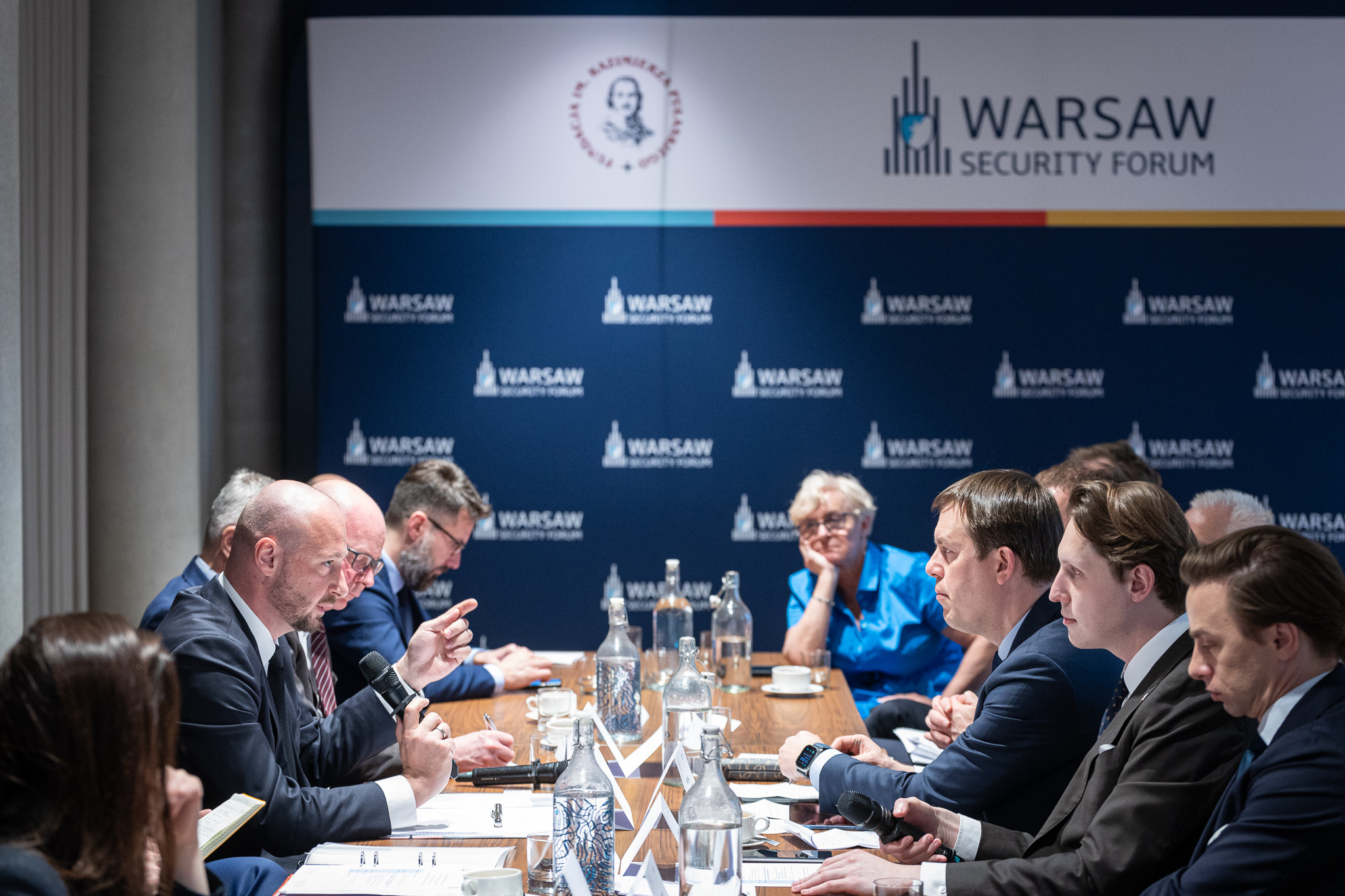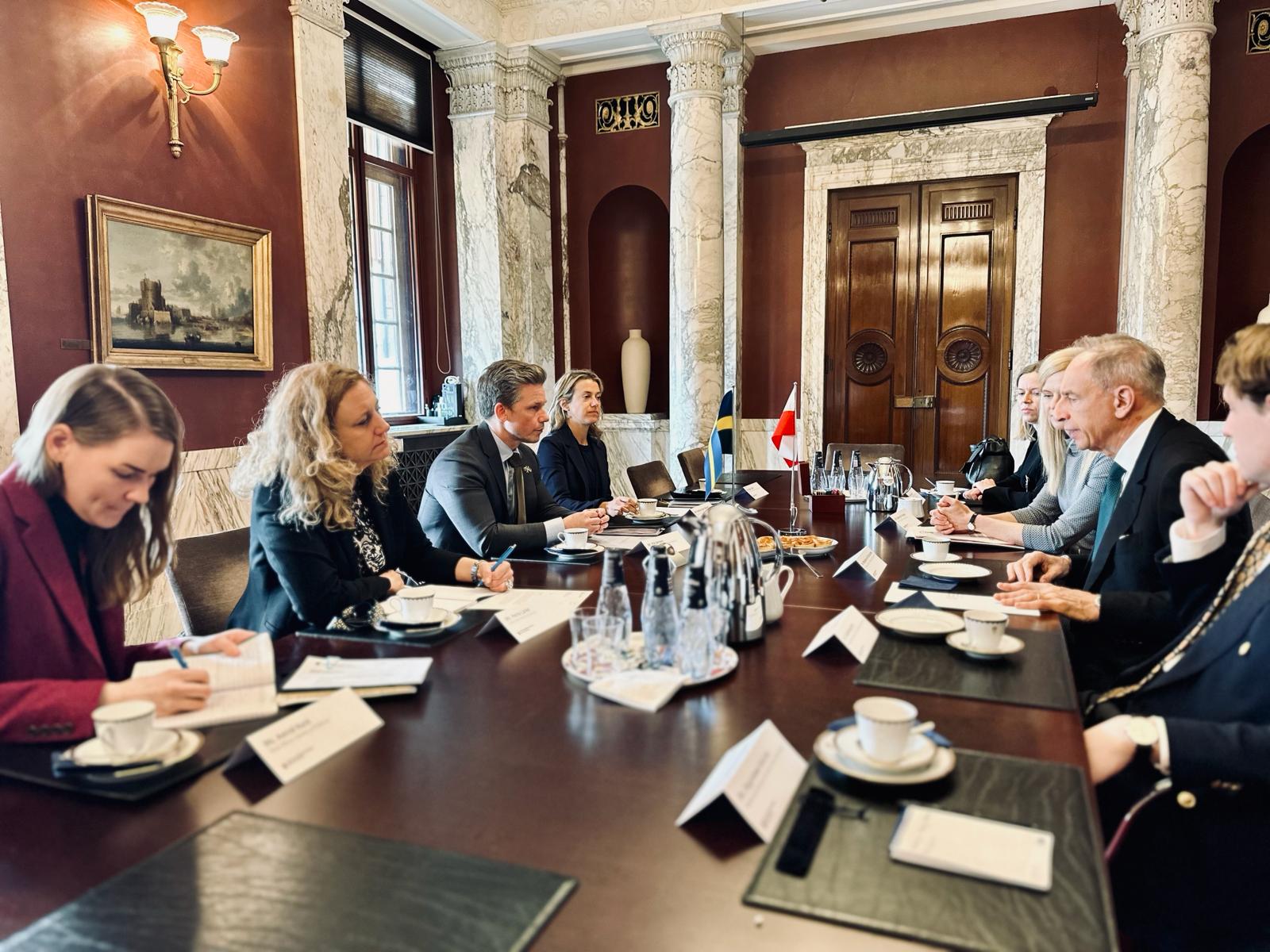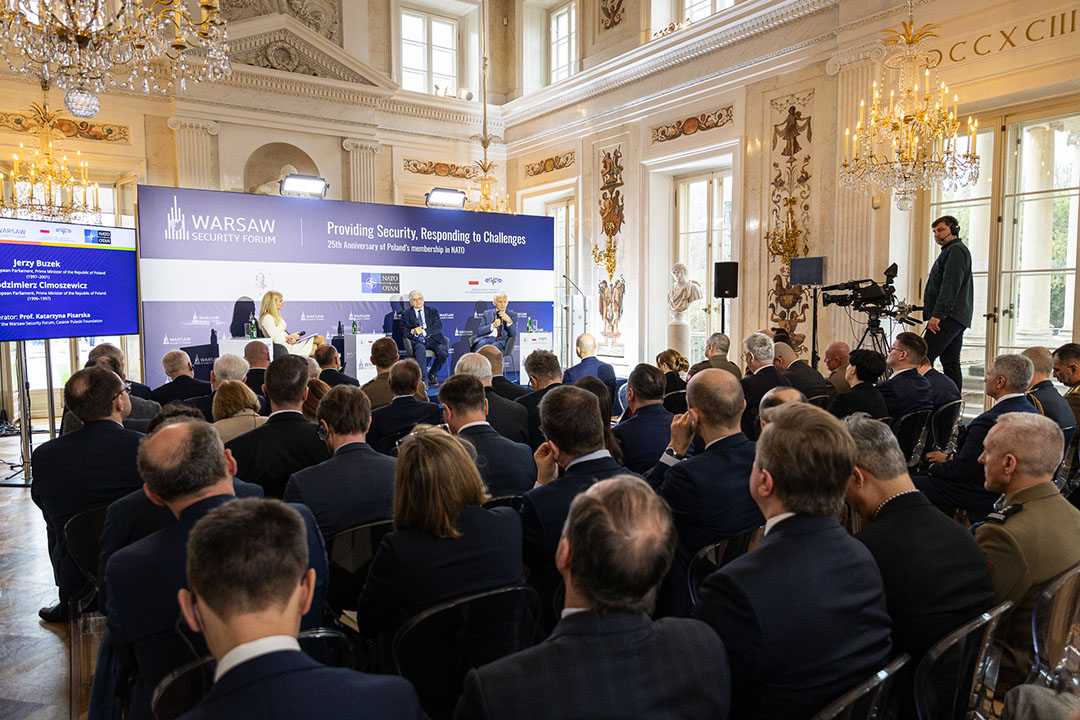The need for strategic empowerment of the European Union in the field of security
The need for strategic empowerment of the European Union in the field of security
The Russian-Ukrainian conflict has become a big test for the security system in the Euro-Atlantic area. We would not start the European Security Strategy (2003) today with the words: “ Europe has never been so prosperous, so secure nor so free.” Other entries in the strategy also need to be updated. Discussions in various international forums show that there is a fairly widespread conviction about the irrelevance of this strategy. The environment around us has changed. The European Union itself has also changed through its enlargement and through adoption of the Lisbon Treaty. The fact that a strategic reflection is required is demonstrated not only in the practice of EU operations (mainly the difficulties the EU usually faces at the outset of a mission, such as in Mali or in the Central African Republic), but also in its approach to the crisis in Europe caused by the Russian-Ukrainian conflict.
The conclusions of the National Security Strategic Review
[1] indicate that the European Union is, next to NATO, the second most important external pillar supporting the security of Poland. The European Union has to become an important strategic player in the field of security in order to function as such a pillar in real life. The actions of the EU aimed at this kind of empowerment should, thus far, be considered short of satisfactory. The European Council’s conclusions of December 2013 were moderately successful in this regard. This success stems partly from the fact that it was the first debate of this kind held at the level of heads of state and government since the Lisbon Treaty came into force in 2009. The conclusions call for the initiation of a strategic reflection process (which we strongly support), but in a less ambitious way than proposed in the report published prior to the December summit by the High Representative of the European Union for Foreign Affairs and Security Policy, as well as in the recommendations of the Council of the EU. Both these documents serve as the basis for the possible launch of works on forging a more clear definition of the new strategic role of the EU in the context of recent changes, and following the Treaty of Lisbon coming into force.
The European Council, in its conclusions, identified three areas of activity (and a number of priority directions among them) which call for concrete actions. In the area of visibility and effectiveness of the Common Security and Defence Policy they will entail, among others: outlining the framework of the EU Cyber Defence Policy (by 2014), formulating the EU Maritime Security Strategy (by 2014), and preparing a report evaluating the influence of changes in the global environment on the policy of the EU (by 2015). In the area of enhancing the development of military capabilities the provisions concern the unmanned aircraft systems (by 2025), Air-to-Air refuelling, the next generation of Government Satellite Communication, and cyber security in the EU. In the area of the defence industry they would include the development of a sustainable, innovative and competitive European technological and industrial base for the defence sector and the possibility for research programs concerning dual-use technologies being funded from the EU budget.
‘The proposed partial actions are obviously important, however without an overarching strategic vision it is difficult to discuss the detailed directions of development of the Common Security and Defence Policy.’
Therefore, as the first step, one should define the overall strategic framework of the EU in the domain of security and, only then, start to discuss specific issues (sectorial strategies and plans, military capabilities, defence industry).
Calling for work on its individual elements, such as: the EU policy framework in the field of cyber defence and the EU Maritime Security Strategy, argues for the need to conduct strategic reflection. The work on the report assessing the impact of changes in the global environment on the EU policy should cover a wider field. One option would be a strategic review of European security which could define common interests, possible scenarios of the development of the security environment and the options for action as well as preparations necessary for their implementation within the EU. Consequently, the report could constitute a kind of a White Paper on European Security.
‘The National Security Bureau is stimulating efforts to obtain support for the idea to work on a new European Security Strategy.’
For this purpose, we have initiated a discussion in the form of strategic workshops with security advisors / secretaries of national security councils, heads of state and government of the Visegrad Group. It resulted in producing the so-called living document – Strategic Issues of European Security. Currently, the discussion is being continued with the Baltic states, and we plan to include into it the Weimar Triangle states, the Nordic countries and other EU members. We want to see what we have in common, but also to take a closer look at what divides us.
‘A good opportunity to do so will be during a meeting with my counterparts from all EU countries on the occasion of the Warsaw Security Forum 2014.’
The results of these discussions may well prove useful during substantive consultations on the content of the report of the High Representative of the European Union for Foreign Affairs and Security Policy.
The optimal structure of the report of the High Representative of the Union for Foreign Affairs and Security Policy, as a mini-White Paper on European Security, could cover four issues: the EU’s mission in the field of security (interests and strategic goals); conditions for the implementation of the mission (security environment); the concept of joint activities aimed at completing the EU`s mission (operational strategy); the concept of joint preparation and maintaining the necessary readiness of the forces and means essential to complete it (preparatory strategy).
The EU`s security mission could be a synthesis of member states’ common interests and strategic goals. The conditions for the implementation of the mission could include three dimensions: global, regional (Europe, the Middle East, North Africa), and internal (the EU and its member states).
The concept of joint actions could include the following priorities: maintaining and demonstrating the determination and willingness to act within a full spectrum of national security domains, strengthening the international security community, selective participation in stabilization activities involving both civilian and military potential.
The concept of joint preparation could aim at the integration of security management institutions or a joint and coordinated development of capabilities.
The actions of the EU towards its strategic empowerment in the field of security have so far been implemented by “baby steps”. The report on the presented structure of issues would constitute a problem-specific, substantive starting point for an in-depth work leading to the creation of a new comprehensive strategic framework of the EU Common Security and Defence Policy in the form of a revised European Security Strategy.
[1] The National Security Strategic Review was carried out from 2010 to 2012 by order of the President of Poland Bronislaw Komorowski. The review entailed an assessment of the state of national security of the Republic of Poland. As a result, key findings and recommendations were formulated on the strategic objectives and methods of action of the state in the field of security and on the preparation of the national security system. The end results of the Review are as follows: a confidential Report of the Commission for National Security Strategic Review and the White Book on National Security of the Republic of Poland.
The author of the policy paper is Prof. Dr hab. Stanisław Koziej, Head of the National Security Bureau. His autobiography can be found on the webpage http://beta.2img.pl/program-council/stanislaw-koziej/.
Road to WSF2014 is a project accompanying the international conference Warsaw Security Forum 2014. It is a collection of analyses from the Forum’s Program Council as well as from globally renown security experts focusing on international security challenges and opportunities. Issued in the printed form, Road to WSF2014 will be distributed to the public administration, participants of the WSF2014, as well as to the general public.
SHARE THIS STORY ANYWHERE YOU LIKE
SHARE THIS STORY ANYWHERE
Poland-Sweden Strategic Dialogue
The Head of the National Security Bureau and the Swedish National Security Adviser met in Warsaw: Poland-Sweden Strategic Dialogue Highlights Shared Commitment to Regional Security.
High-level delegation to Stockholm
Last week Warsaw Security Forum organized a high-level delegation to Stockholm, to hold ministerial-level meetings. Their aim was to discuss the security situation in the region and the preparations for this year's edition of the #WSF2024.
25th Anniversary of Poland’s membership in NATO: Conference summary
The Casimir Pulaski Foundation, the organizer of the Warsaw Security Forum, and the Delegation of the Sejm and Senate of the Republic of Poland to the NATO Parliamentary Assembly, in cooperation with NATO, are organizing a celebration of the 25th anniversary of Poland’s accession to the North Atlantic Treaty Organization. The event is scheduled to take place on March 18th, 2024, in Warsaw.



